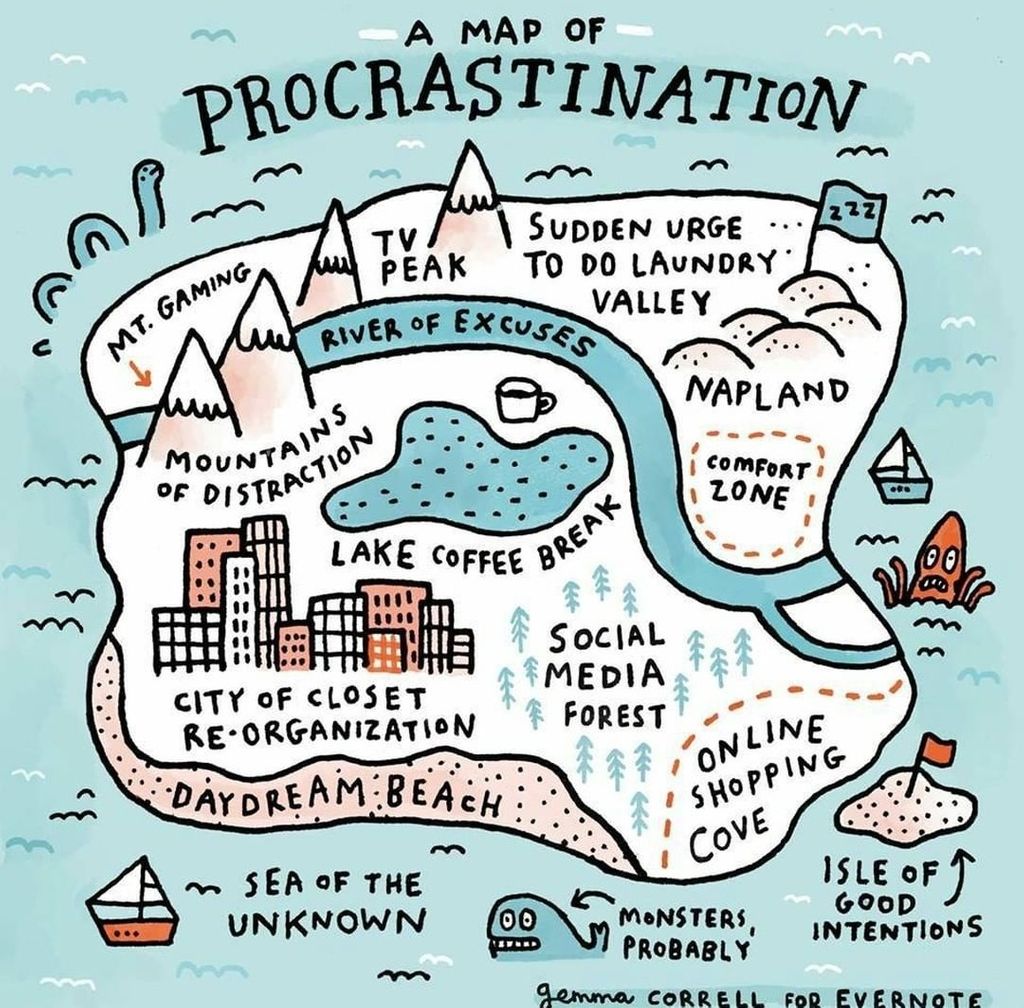Why Do We Procrastinate? - A Psychological Perspective
May 04, 2019 • 208 views

Tim has an important exam to prepare for on Monday. Tim passes his whole Saturday watching Netflix and chilling. Tim Promises himself that he would wake up early in the morning on Sunday and would study. He wakes up late and has a good meal and feels tired for the rest of the day. Tim crams himself on Sunday night. We all have been like Tim. Why do we do what we do? Have you ever wondered why do I procrastinate so much? Why does my motivation level go down when I actually have to get my task done?

Why do we do what we do?
Let me tell you that you are not alone and explain it in psychological theory. Yes, we procrastinate but why we procrastinate is because we are practising something called Self-Handicapping. Self Handicapping is a basic cognitive strategy in which we exert little or no efforts to actually attain our goal because of the fear of failure or not being able to reach the standards we set for ourselves and by the society. In which case by self -handicapping we already have a situation to blame. For example. "I failed because I went to a party last night. If only I had studied", “I couldn’t perform my interview well because I was feeling sick the day before (In most of the cases in which there’s no actual physical problem).
The above are a few examples of self-handicapping.

Types of Self Handicapping we practise:
Self-handicapping is generally seen in students but is practised by humans all over their lives. Self-handicapping was first theorized by psychologists Edward E. Jones and Steven Berglas.
Self-handicapping is generally exhibited in two ways.
One is behavioural handicapping like consuming alcohol the day before an exam, binge-watching T.V. shows and failing to work, not following the particular way in which the work has to be done to reach the goals.
Other is claimed handicapping in which claiming the failure to a hypochondriacal complaint (claiming to have a physical ailment when in fact there is nothing wrong), and some unreasonable situation.

Boosting Self-esteem or failing to give the best:
Sometimes self-esteem gets boosted when the individual manages to receive positive outcomes in spite of self -handicapping. For example: “I got a pass mark in spite of me pulling a nighter just the day before the exam”In which case the individual more or less fails to understand that self -handicapping has made the individual to get just a border pass mark and he/she could've scored better if prepared well. Sometimes individuals who strive for perfectionism in every little thing they do can also end up procrastinating because of the thought of the strenuous work they need to put in.

Although all of us procrastinate and manage to get things done to an extent, it disables us from giving out our best.
In this case, are we failing to prepare or preparing to fail?

Understanding why we do unproductive things might help us avoid doing it.
In this article, I have majorly spoken about self-handicapping. In my next article, I will write more about procrastination and simple ways by which we all together can overcome it.
Well, it might sound like I am procrastinating here. Believe me, No I am not.
